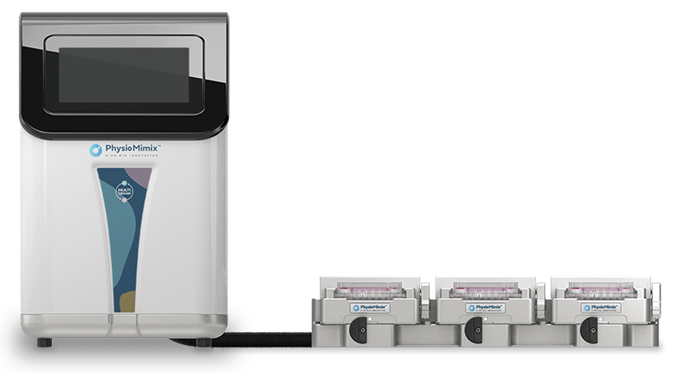CN Bio, a leading provider of Organ-on-a-chip (OOC) Systems and solutions that accelerate drug discovery and development workflows, today announced the expansion of its Contract Research Services (CRS) with new PhysioMimix® computational modeling tools. These capabilities have been developed to enhance Absorption, Distribution, Metabolism and Excretion (ADME) profiling, for accelerated drug discovery and development workflows.
 Image Credit: CN Bio
Image Credit: CN Bio
This launch represents the Company's new in silico tools available to customers and is designed to enhance data generation from its range of predictive in vitro tools - unlocking deeper insights into key ADME parameters, including human bioavailability, and enabling more confident in vitro to in vivo extrapolation (IVIVE).
CN Bio's computational tools combine the insights gained from microphysiological system (MPS) assays with powerful mathematical models. These tools complement the Company's existing bioavailability assay based on its proprietary dual-organ Gut/Liver model, available via the CRS or as an off-the-shelf kit. The derived data is fully compatible with physiologically-based pharmacokinetic (PBPK) frameworks and can be used to extract additional data from preclinical studies, providing functional predictions of how compounds interact with human biology.
By working with CN Bio's CRS team, customers gain access to broad support and expertise from both MPS and computational modeling specialists. The team collaborates closely with customers throughout the process, from ensuring robust study design to translating experimental data into meaningful ADME predictions. Raw data generated from projects is also translated into an easy-to-interpret format, suitable for supporting go/no go and drug dosing decisions.
This year, the FDA made significant changes to phase out animal testing requirements, signaling a clear shift towards the use of more relevant human approaches for preclinical safety and toxicity testing. We are providing the tools to ensure our customers stay ahead of these regulatory changes." He added: "The launch of our Bioavailability assay last year was a major step towards improving understanding of the appropriate dose regimens for safe and effective new therapies. Now, by integrating advanced in silico modeling into our offering, we are enhancing this service to bridge the in vitro to in vivo translation gap for drug developers. By working with our expert CRS team, customers have access to dedicated support throughout the entire process."
Dr Yassen Abbas, Lead Scientist, CN Bio